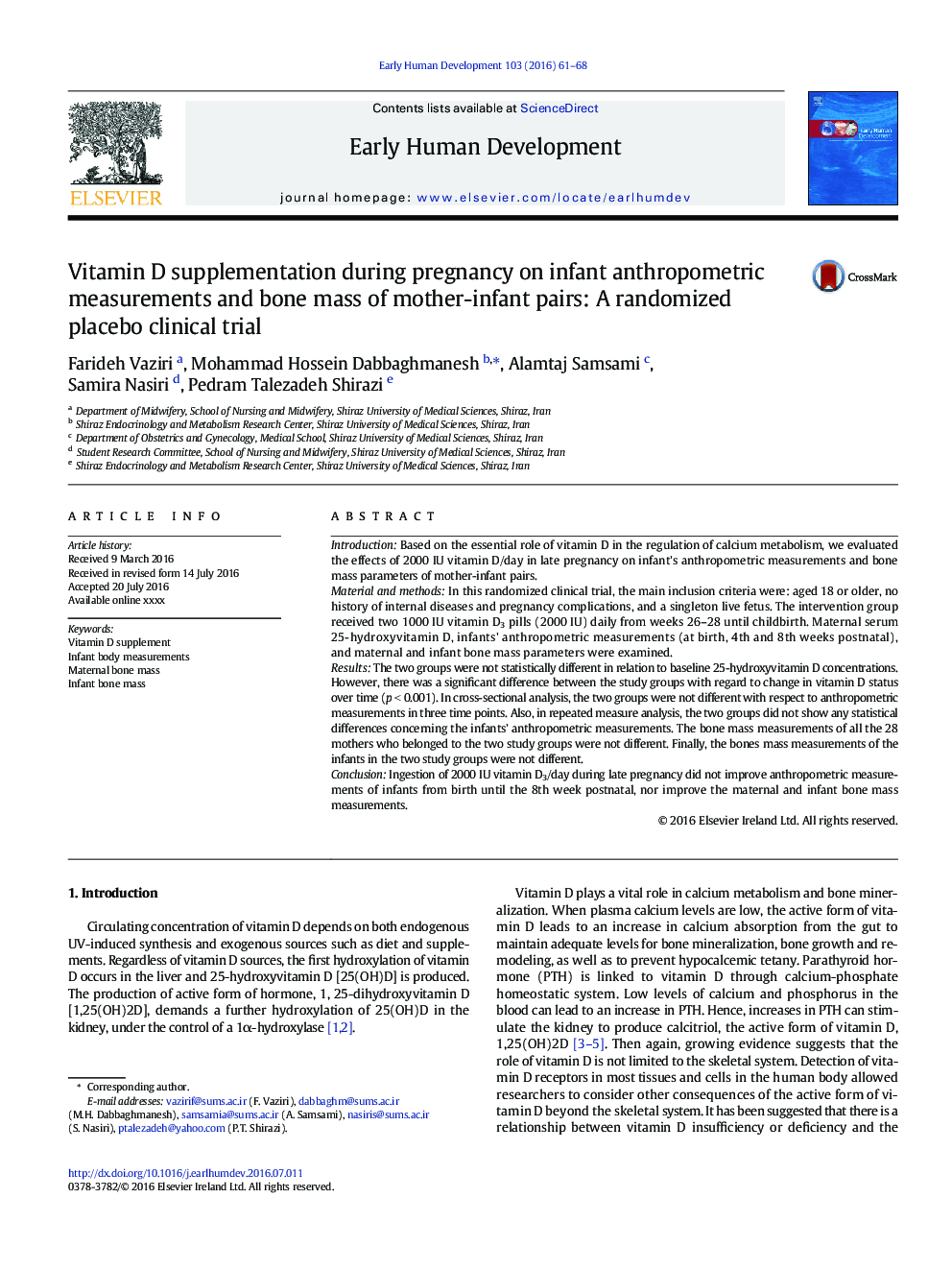| Article ID | Journal | Published Year | Pages | File Type |
|---|---|---|---|---|
| 3916370 | Early Human Development | 2016 | 8 Pages |
IntroductionBased on the essential role of vitamin D in the regulation of calcium metabolism, we evaluated the effects of 2000 IU vitamin D/day in late pregnancy on infant's anthropometric measurements and bone mass parameters of mother-infant pairs.Material and methodsIn this randomized clinical trial, the main inclusion criteria were: aged 18 or older, no history of internal diseases and pregnancy complications, and a singleton live fetus. The intervention group received two 1000 IU vitamin D3 pills (2000 IU) daily from weeks 26–28 until childbirth. Maternal serum 25-hydroxyvitamin D, infants' anthropometric measurements (at birth, 4th and 8th weeks postnatal), and maternal and infant bone mass parameters were examined.ResultsThe two groups were not statistically different in relation to baseline 25-hydroxyvitamin D concentrations. However, there was a significant difference between the study groups with regard to change in vitamin D status over time (p < 0.001). In cross-sectional analysis, the two groups were not different with respect to anthropometric measurements in three time points. Also, in repeated measure analysis, the two groups did not show any statistical differences concerning the infants' anthropometric measurements. The bone mass measurements of all the 28 mothers who belonged to the two study groups were not different. Finally, the bones mass measurements of the infants in the two study groups were not different.ConclusionIngestion of 2000 IU vitamin D3/day during late pregnancy did not improve anthropometric measurements of infants from birth until the 8th week postnatal, nor improve the maternal and infant bone mass measurements.
